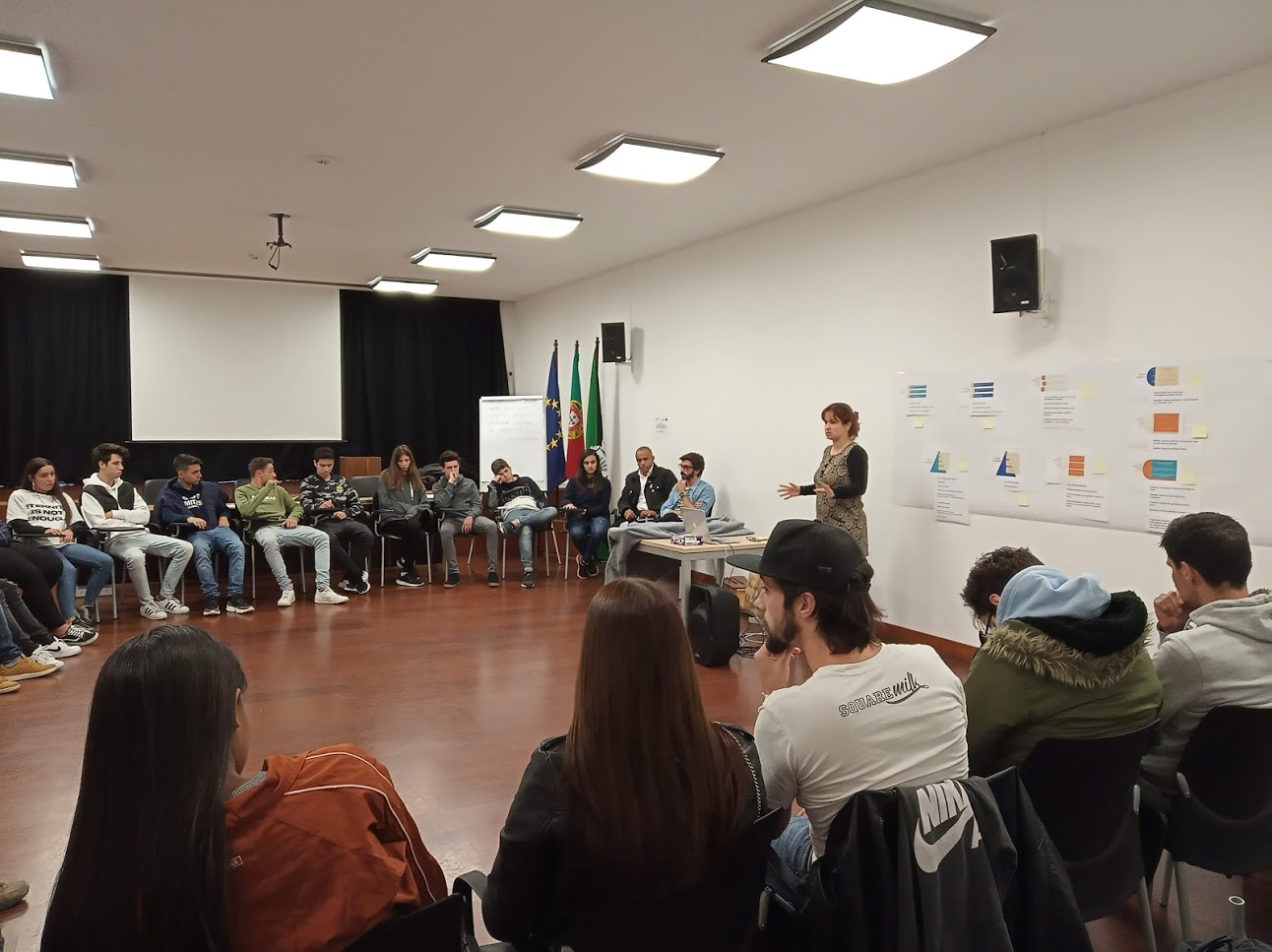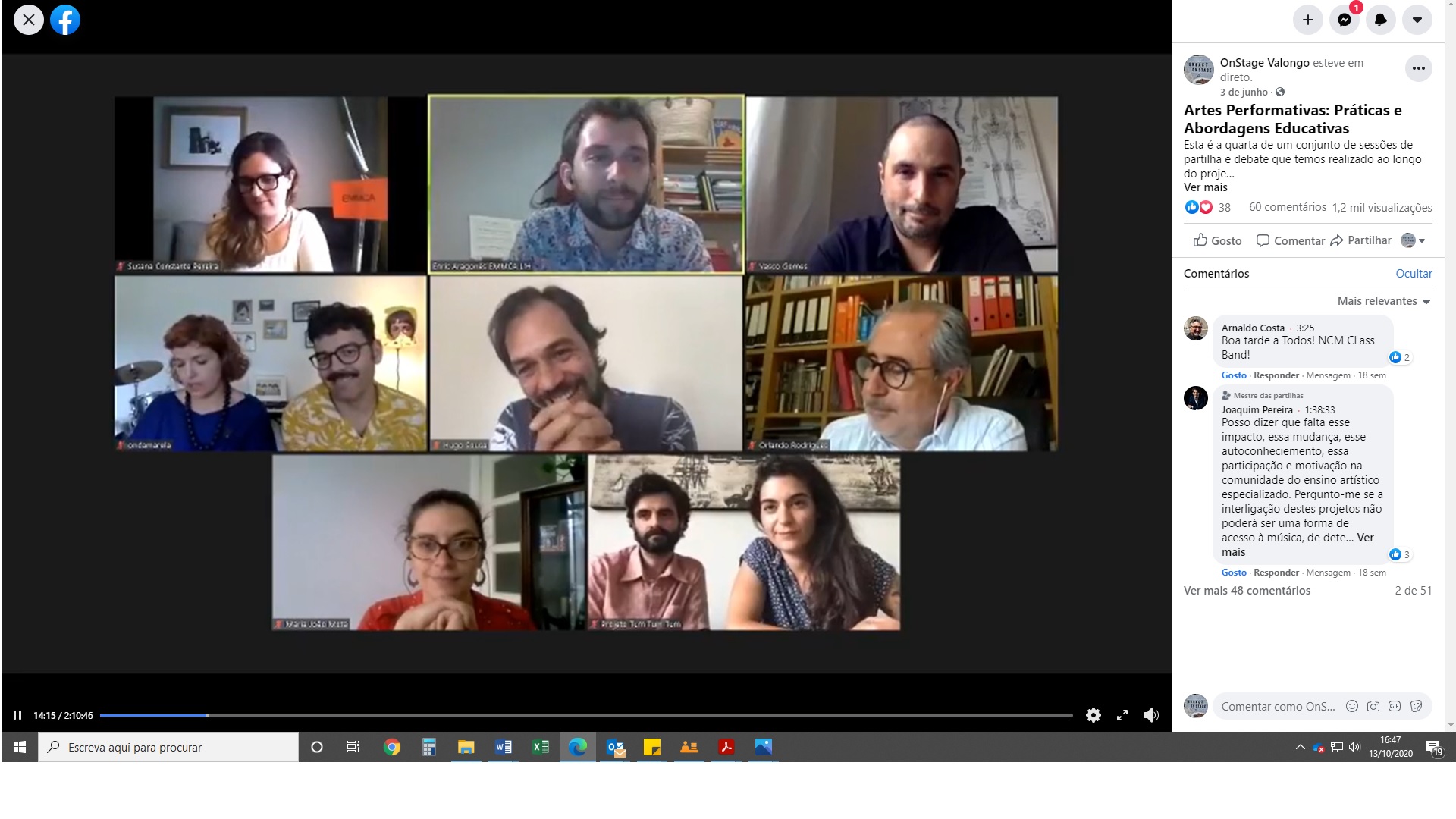Valongo and the URBACT OnStage project: a participatory process from start to finish
Edited on
22 October 2020From the beginning of the URBACT OnStage project, the Portuguese city of Valongo invested heavily in a participatory process aimed at co-creating the methodologies and strategy to put musical and artistic teaching at the service of the social cohesion of the city. Now that the end of the project is approaching, it is time to evaluate it and look forward.

The Transfer Plan
At the beggining of the project, the construction of the Transfer Plan - Valongo's plan to transfer the Good Practice from L'Hospitalet's EMMCA to the city - was a three-month task, strongly supported in the experience and knowhow of Valongo’s URBACT Local Group (ULG) members. Non-formal education methodologies were selected because they provided participants an opportunity to clarify, expectations, objectives, and even start to decide on final goals. A ULG group met in a regular basis, actively participating in every step of the project.
The search for answers
The group decided to work with youngsters at risk of becoming NEETs, a group which is not well known. For this reason, a needs assessment was carried on. It involved finding out the number, characteristics and needs of youngsters between 12 and 25 years old, that are inhabitants or study in Valongo and that did not complete compulsory education. At the same time, they had to have at least one of the following characteristics: one or more school failures; risk of school failure due to absenteeism or learning difficulties; disciplinary action in school settings or legal action because of family reasons; school dropout without being involved in another sort of training or job opportunity.
Schools and institutions that work with families of youngsters with such characteristics were contacted and 8 of them answered, and a total of 27 social workers, psychologists and other professionals that work with these families were involved.

The final profile allowed us to understand what the profile of these youngsters in the territory is and what needs that they have.
At the same time, these results were discussed with a selected group being at risk of becoming NEET youngsters, and lessons were learned, especially because of the interaction that was created.
Experts have their say
Four thematic public sessions were implemented. Experts from the academia, good-practices of other territories and practitioners were invited to discuss with the ULG and whoever wanted to join the way. Many answers emerged from this context, including the legal possibility of a solution to implement the OnStage political proposal.
During the pandemic, these activities continued and we were able to meet with national and international experts to how to use artistic practices to discuss methodologies and educational approaches. L’Hospitalet’s EMMCA was represented by Enric Aragonès Jové.

What happens next?
The political proposal, which will be submitted to the mayor, was discussed in the ULG and drafted by a small team, according to their indications. This is the final and most important step in the transfer process from L’Hospitalet. How it will turn out is still in realms of dreams…
....................
Article by Marta Daniela Costa - For further information, please contact her at MartaDaniela.Costa@cm-valongo.pt
Pictures by Câmara Municipal de Valongo
Follow our activity on Twitter and visit our website www.urbact.eu/onstage
Submitted by c.salido on
